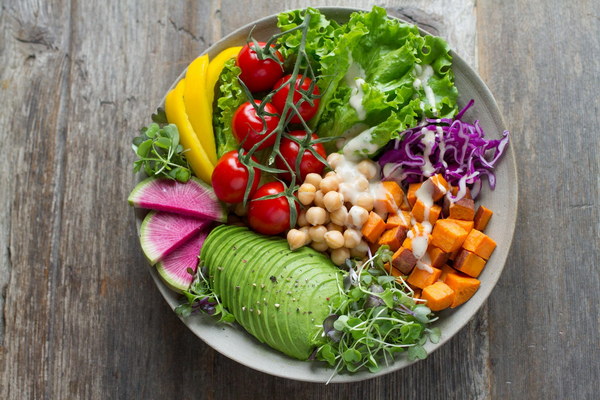Nourishing Your Way to Wellness Natural Food Remedies to Banish Damp and Cold Qi
In the pursuit of health and vitality, it's essential to address the imbalances within our bodies. One common issue that many of us face is the presence of damp and cold qi, which can lead to discomfort and weakness. Traditional Chinese Medicine (TCM) offers a wealth of knowledge when it comes to balancing the body's energy, and one of its key principles is the use of food as medicine. Below, we delve into natural food remedies that can help banish damp and cold qi, promoting overall well-being.
Understanding Damp and Cold Qi
In TCM, damp and cold qi refer to imbalances in the body's internal environment that can result from external factors such as damp weather, cold temperatures, or poor diet. These imbalances can manifest as various symptoms, including fatigue, weakness, cold hands and feet, joint pain, and digestive issues.
Food Remedies to Combat Damp and Cold Qi
1. Cinnamon Tea: Cinnamon is a warming spice that is known to help expel dampness and cold from the body. Brew a cup of cinnamon tea by steeping cinnamon sticks in hot water for 10-15 minutes. Drink this tea regularly to support your body's natural balance.
2. Ginger: Ginger is another excellent herb for expelling dampness and cold. It can be added to soups, stews, or teas. Simply grate some fresh ginger and add it to your cooking or brew it as a tea by steeping slices in hot water.
3. Rice Wine: Rice wine, or sake, is believed to have warming properties that can help alleviate dampness. A small glass of warm rice wine before bedtime can be beneficial, but be cautious with consumption as it is an alcohol.
4. Soy Products: Tofu, tempeh, and other soy products are considered to be good for expelling dampness. They are also rich in protein, which can help support your body's overall strength.
5. Chickpeas and Lentils: These legumes are not only nutritious but also have properties that can help with dampness. Include them in soups, salads, or stews to aid in your dampness relief.
6. Millet: Millet is a grain that is particularly beneficial for dampness due to its warming nature. It can be cooked as a porridge or added to dishes to help expel dampness.
7. Carrots: Carrots are rich in beta-carotene and have diuretic properties that can help with the elimination of dampness. Incorporate carrots into your diet by roasting, steaming, or juicing them.
8. Dried Fruits: Dried fruits like dates and figs can help to warm the body and expel dampness. They can be enjoyed as a snack or added to recipes.

9. Herbal Poultices: Creating a poultice from herbs like ginger, turmeric, and cinnamon can help to warm and expel dampness. Apply the poultice directly to the affected area for a soothing effect.
Precautions and Considerations
While food remedies can be beneficial, it's important to consult with a healthcare professional, especially if you have pre-existing health conditions or are pregnant. Additionally, it's crucial to maintain a balanced diet and a healthy lifestyle to support the body's natural healing processes.
By incorporating these natural food remedies into your diet, you can help to banish damp and cold qi, leading to improved energy levels, digestion, and overall health. Remember, the key to balancing your body's energy is to listen to your body and make changes that work for you.









